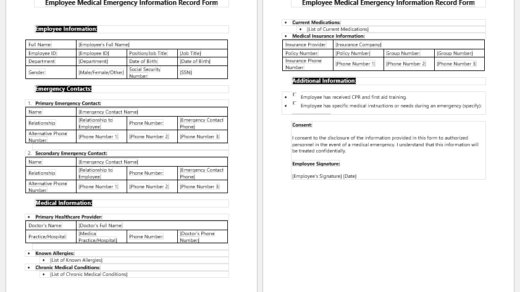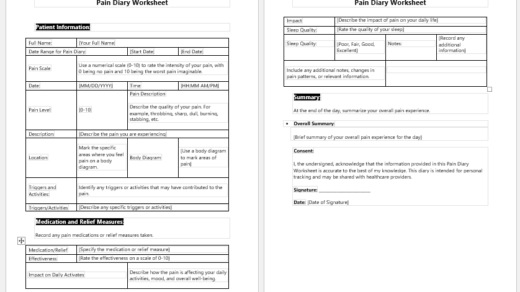Organ donation is a very critical process, and there are so many legal formalities involved in it. A hospital needs to be licensed and registered to be able to carry out the organ transplant. Those who want to donate their organ during their life or after they pass away will have to contact the hospital or the non-profit organization that they find trustworthy and want to carry out the surgery to remove the organ from their body.
What is a hospital organ donor form?
This is a tool that takes the information from the donor who wants to donate the organ and then keeps it safe in the hospital’s database. The donor fills out the form by providing the required details in every empty field of the form. It also serves as proof that the consent of the donor was obtained.
Why is it important to use a clinic organ donor form?
The use of this form ensures that the wishes and desires of the organ donor are taken into account concerning the donation of the body part. The form is very helpful in reducing the emotional burden on the family of the deceased person, as the entire process is in the hands of the hospital, and decision-making on the part of the grieving family is not required.
However, it is important that the medical staff discuss the final wishes of the deceased person with his family and make sure that the wishes of the family are also taken into consideration and that this entire process of donation is handled sensitively and in accordance with the method followed by the donor.
The use of this form indicates that the person who has filled it out has very clear intentions to donate his organs after his death. This way, the hospital protects itself from various legal problems arising.
What are the main elements of the form?
When you create the form for your hospital, you should make sure that you have the following details in it:
Personal information of the donor
The person who is likely to be a donor should share his personal information on the form so that he can be identified and contacted as and when it is required. Personal information usually includes name, gender, date of birth, and contact details, including phone number and address.
Some identification details are also collected, including the license number, ID card number, social security number, and whatnot.
Organ consent
The donor is asked to give his consent in the form, which will be proof that the organ will not be taken from him without his consent, and the entire process will be carried out according to the will that he has stated in the form.
Description of the organ
The donor is also required to indicate which organ he wants to donate. This may include a list of organs, and the donor will have to choose one or more from it.
Restrictions
If there are some restrictions regarding the process of giving away after the death of the person willing to donate, they should also be shared in the form. There are often some conditions that are required to be met before the extraction of the organ, such as some religious conditions of the donor or some medical conditions. The hospital should keep all of them in mind to ensure that it fulfills all the conditions when it goes for the extraction of the organ. Some donors also restrict who they want to donate their organs to. For instance, some people like to donate to kids only. This special instruction is also collected by the form.
Date and place of donation
Here the donor will specify the date and place on which he will be available for donation. In case he wants to date after his death, he will have to ask his family to contact the hospital.
Signatures
It is very important to remember that donating without consent is a crime. A hospital always wants to protect itself from legal complications that may arise later on. Therefore, at the bottom of the form, the signature of the donor should be collected.
- Nursing Documentation Templates
- Mental Health Evaluation Forms
- Forms Used by Pediatricians
- Various Forms Related to Pregnancy Verification
- Common Forms Used by ENT Specialists
- Pain Diary Worksheet Template
- Forms Commonly Used by Old Age Homes
- Medical Treatment Consent Form
- Home Exercise Program Worksheet
- Forms Used for Mental Health Assessment
- Forms Used by Psychologists
- Medical Forms Commonly Used by/for Students
- Assessment Consent Form
- Forms Used by an Anesthesiologist
- Not Fit to Fly Certificate Template



